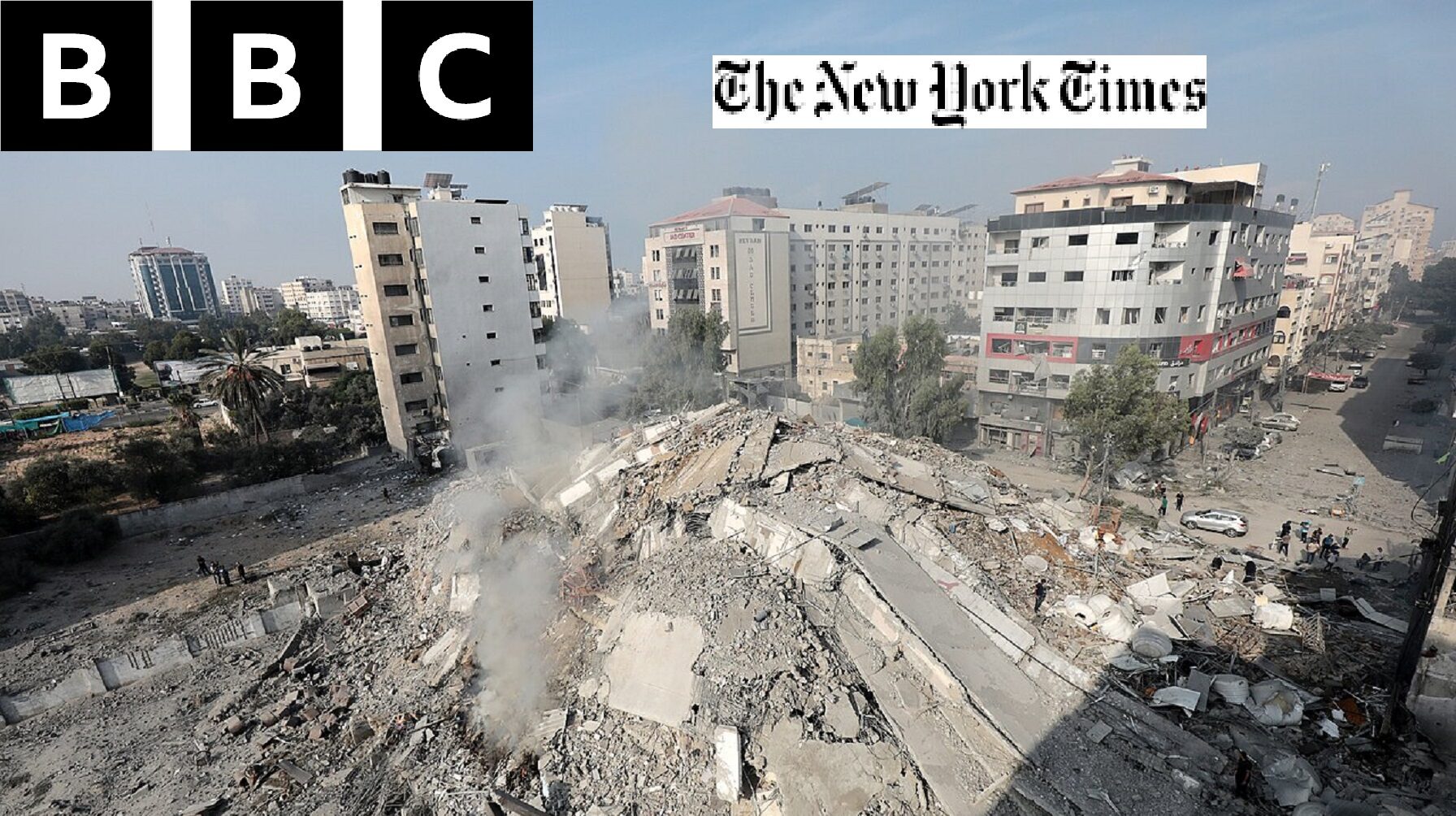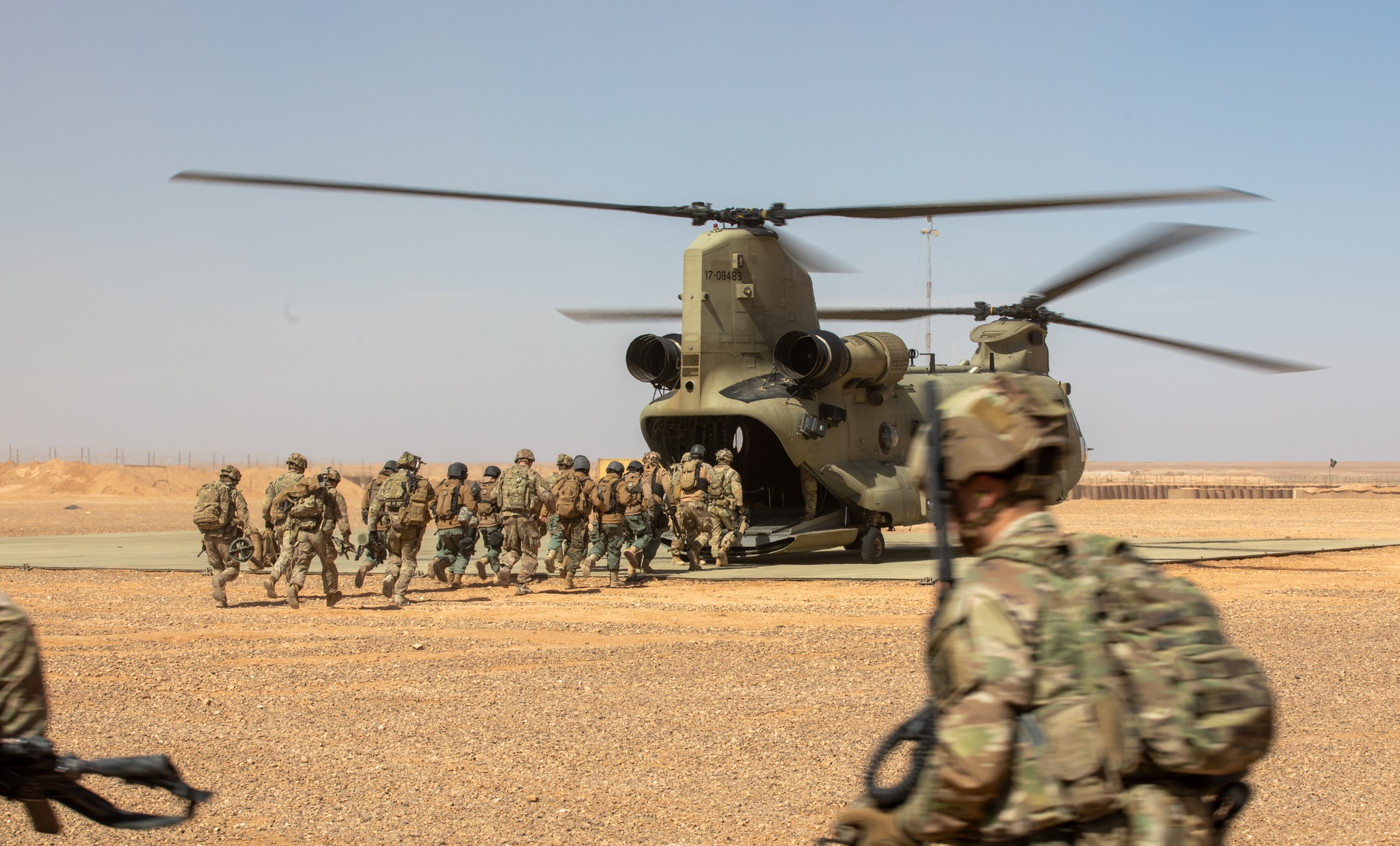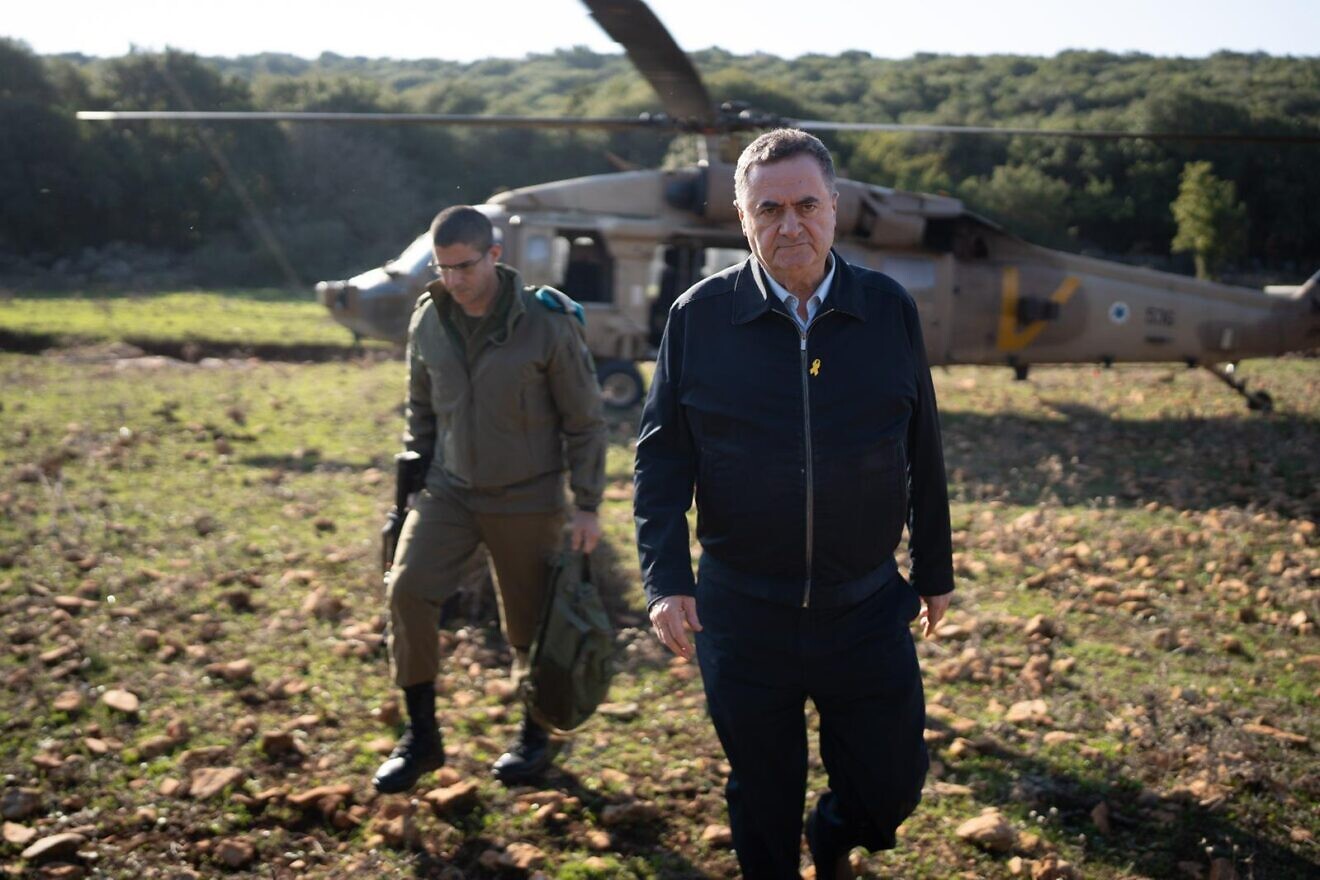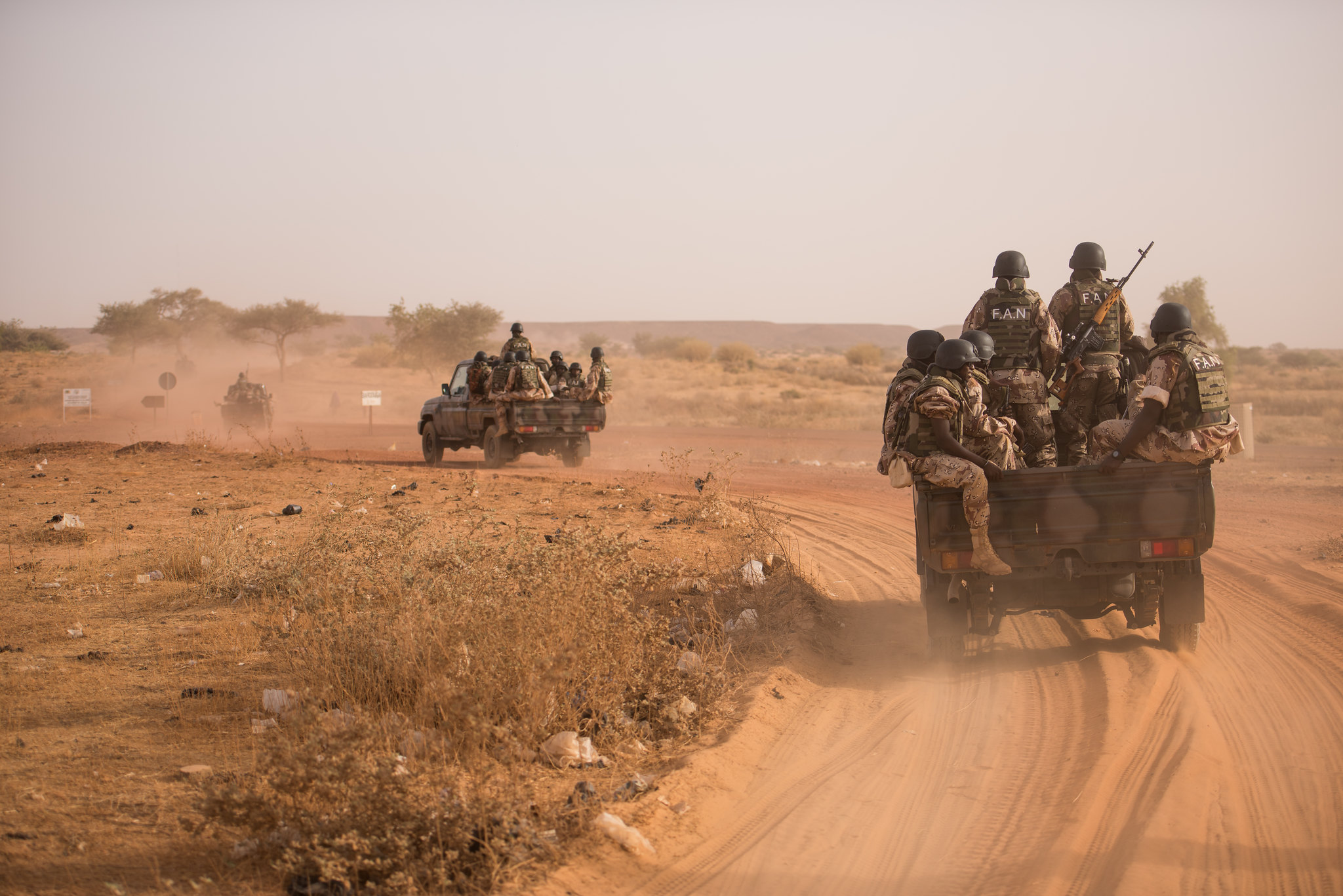In a worrying trend for media integrity, another major Western news outlet has been revealed to have strict editorial guidelines for downplaying or ignoring the genocidal crimes committed by Israeli forces in the Gaza Strip.
In an interview with several BBC staffers, an editor-in-chief named Raffi Berg has been revealed to have one single job—”to water down everything that’s too critical of Israel”.
The ‘landmark investigation,’ published in Drop Site News, comes 8 months after a leaked memo revealed that the New York Times is doing something similar: instructing journalists to restrict the use of the terms “genocide” and “ethnic cleansing” and to “avoid” using the phrase “occupied territory” when describing Palestinian land, along with the word “Palestine”.
Taken together, the reports show how the two largest media organizations by viewer/readership in the Western Hemisphere are both manipulating the wording of events to obscure the war crimes of Israel’s siege on Gaza, while portraying it as a two-sided conflict between something like nations rather than the systematic killing and dispersal of a captive civilian population by a national military.
Of Mr. Berg, one former BBC journalist said the editor has led a culture of “systematic Israeli propaganda,” with another remarking that it was “wild how much power he has”.
“There was an extreme fear at the BBC, that if you ever wanted to do anything about Israel or Palestine, editors would say: ‘If you want to pitch something, you have to go through Raffi and get his signoff,” another journalist—one of 13 that spoke to the independent outlet Drop Site News, explained.
The authors gave an example of Berg’s decision to report on Amnesty International’s characterization of the Gaza siege as a genocide with the headline: “Israel rejects ‘fabricated’ claims of genocide,” while delaying its publication by 12 hours to reduce the story, and therefore the report’s, reach. Furthermore, the Amnesty report was not covered on the BBC’s flagship news programs—BBC One’s News At One, News At Six, or News At Ten or its flagship current affairs program, BBC Two’s Newsnight.
New York Times staffers told The Intercept something similar—that standards editor Susan Wessling and international editor Philip Pan sought to encourage writers to steer clear from “incendiary” language often at odds with official United Nations designation; of things like refugee camps in Gaza, for example.
“It’s like, ‘Oh let’s not say ‘occupation’ because it might make it look like we’re justifying a terrorist attack,’” one staffer said of the memo, which sought to clarify language use in the paper following the October 7 attacks.
“I think it’s the kind of thing that looks professional and logical if you have no knowledge of the historical context of the Palestinian-Israeli conflict,” said another Times newsroom source, who requested anonymity for fear of reprisal. “But if you do know, it will be clear how apologetic it is to Israel”.
Tampering with the evidence
In 2014, Antiwar reported just how much obfuscation the Times is comfortable with, when Israeli military units bombed 4 children playing soccer on the beach. Their original headline read “Four Killed Playing on Gaza Beach” omitting any mention of Israel. However, within 24 hours, the headline had been changed even further, to “Boys Drawn to Gaza Beach, and Into Center of Mideast Strife”.
The story was written in reaction to the news that the Israeli military had bombed a beach on which four children were playing, believing them to be Hamas militants.
In the 2024 memo, editors Pan and Wessling pay close attention to the use of words like “genocide” or “ethnic cleansing”. The latter they describe as a specific crime of international law, and the second as something that’s “historically charged,” and that requires “proper context”. They are even stricter with language regarding Palestine—a word that should almost never be used unless referring to UN decisions or quoting UN material—and strongly dissuade the use of “refugee camps” or “occupied territories”.
Coincidentally, both terms are problematic for maintaining diplomatic relations with Israel, since refugees in the sense of the word have a place that was theirs that they were driven from, and occupied territories are places that don’t belong to the occupier.
The Drop Site News investigation of the BBC though is even more severe. Raffi Berg, it notes, published a book praising Israeli intelligence operations while maintaining his editorial position, and despite okaying terms like slaughter and massacre to describe the Hamas attacks on October 7th, mass killings of civilians in Gaza of equal numbers and indiscrimince never garner such descriptive terms, according to Rami Ruhayem, a Beirut-based BBC Arabic correspondent. Similar accusations have been leveled by media watchdog groups.
“Israel Gaza: Father loses 11 family members in one blast” stated a headline that aimed to report on the fact that a single Israeli airstrike had killed an entire family and extended family. If a report on killings simply must contain the word “Israel,” the word “reportedly” is almost always included. When Israeli Defense Minister Yoav Gallant called Palestinians “human-animals” there was one single reference made to it across all BBC platforms and coverage.
“Many of us have raised concerns that Raffi has the power to reframe every story, and we are ignored,” one journalist said. “Almost every correspondent you know has an issue with him,” another stated. “He has been named in multiple meetings, but [BBC management] just ignore it”.
The death toll in Gaza, which is higher than 45,000, is almost all civilians. A coalition of US physicians believe over 100,000 have been killed, since the Palestinians have precious little heavy equipment for digging bodies out from under concrete apartment buildings.
World at Large editorial guidelines for describing the events following October 7th tend to use what outlets like the Times and BBC will say when describing attacks on Israel and Israelis. WaL refers to the conflict as genocide based on the conclusion of the case against Israel at the International Court of Justice. The justices, while not calling Israel’s actions genocide by name, issued an injunction that demanded it immediately comply with its obligations under the Genocide Convention, i.e., it was at the moment, and ever since, beyond them. WaL
We Humbly Ask For Your Support—Follow the link here to see all the ways, monetary and non-monetary.
PICTURED ABOVE: A destroyed building in Gaza, October 2023. PC: Palestinian News & Information Agency CC 3.0.



